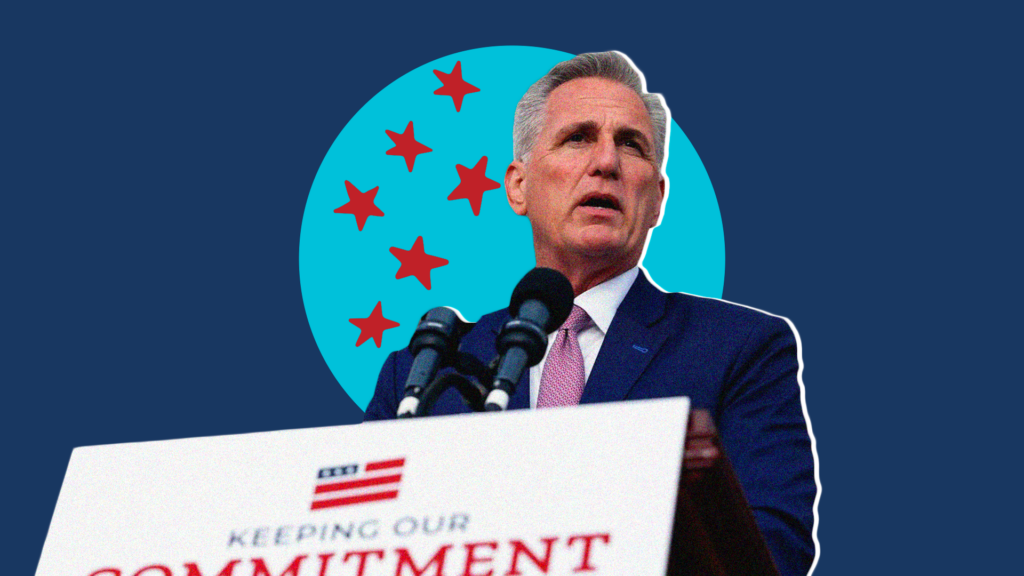Falling Flat
Matt Drudge got conservatives’ hopes up for nothing Monday when he ran a story that Speaker of the House Denny Hastert planned to “push for replacing the nation’s current tax system with a national sales tax or a value added tax.” Unfortunately, Drudge based his story mostly on comments from the speaker’s upcoming book, Speaker, rather than real indicators that fundamental tax reform is on the way.
The “Exclusive!” blurb only served to highlight one major frustration of tax-reform advocates: That the main obstacle standing in the way of fundamental tax reform is not an insurmountable Democrat opposition but a Republican leadership that is unable to reach agreement on a plan and unwilling to lead.
Conservatives are split on whether to replace the current, hopelessly broken tax code with a flat tax that would allow tax returns to be filed on a post card, or a national sales tax that would replace the income tax. A few conservatives have also discussed a value-added tax.
The Drudge item served to highlight the indecisiveness that many Republican leaders have shown. A spokesman for Hastert said the speaker favors a value-added tax, but is open to sales-tax and flat-tax ideas. And House Ways and Means Committee chairman Bill Thomas has expressed an interest in holding hearings, but a spokesperson for the committee says Thomas wants “whatever is most politically feasible” and won’t commit to one plan over another.
The strongest leadership on tax reform right now is coming from House Majority Leader Tom DeLay, who advocates the national sales-tax plan proposed by Rep. John Linder. But as several tax-reform advocates point out, the national sales tax is a much more difficult sell politically than the flat tax.
Daniel Mitchell of the Heritage Foundation said, “I do know there is a lot of interest on Capitol Hill in the national sales tax. They have a fervent core of people who are convinced that’s the way to go. But the polling data have never been sympathetic to a national sales tax.” And the idea lacks traction among many conservatives as well. “The downside risk of a national sales tax is that politicians would adopt a national sales tax and leave the income tax,” Mitchell points out. The 16th Amendment, authorizing the income tax, would have to be repealed in order to placate conservative sales-tax opponents, or else, “All it would take is a President Hillary and a Democratic Congress,” and suddenly we’d be stuck with both.”
The Bush campaign is unlikely to publicly embrace a flat tax in the last three months of this election, especially since Kerry is already playing the class-warfare card. This is unfortunate, because fundamental tax reform is a perfect counter to John Kerry’s tax ideas, most of which would further complicate an already inscrutable tax code.
But Kerry has co-opted the conservative message on taxes, claiming that “the tax laws for income earned in foreign countries have been so complicated that the system is almost completely broken,” and using similar rhetoric to push for complicated tax increases in the name of simplification.
Matt Kibbe, president of the newly formed grassroots-advocacy organization FreedomWorks, explained that “the danger in this emerging debate is that we let Kerry and the Left define ‘tax simplification’ to mean tax increases. ‘Simplification’ should not be an excuse to raise overall tax levels. That’s why President Bush and the Republicans need to seize the high ground and renew the call for fundamental tax reform now.”
Sadly, it doesn’t appear likely. Although Drudge claimed he had it on good authority from “Hill sources” that the Speaker was planning to make a serious push, several Hill sources told National Review Online that they hadn’t heard anything about it. One senior leadership aide said it was not because Hastert is insincere in his desire for tax reform, but because the GOP leadership lacks consensus on a plan.
Bush should lead the GOP on this issue. He should cut through Kerry’s obfuscation and explain to voters what tax simplification really means — permanently repealing the death tax, eliminating double taxation of investment and savings, and scrapping the hopelessly broken tax code in favor of a lower, simpler flat tax.



